The information age hasn't satisfied our thirst for wonder. Is our fast answer culture actually dehumanizing us and eroding away the very thing we're seeking?
You know that feeling you get when you go outside on a clear, dark night and can just make out the sparkling disc of the Milky Way? For a moment, you're out. Out in the great beyond. Your mind blasts off past the end of your driveway and into the cosmos. Blowing by your troubles, you're on your way to other worlds. In these moments, we have a heightened sense of the out-of-mind beauty that exists all around us. As we pause, trivial questions burn up in the atmosphere and bigger questions loom larger. We feel wonder. And just like that, you open the garbage can lid and toss your questions in before walking back into the house.
Know Everything
We live in an age that is uncomfortable with quiet. Many of us cart our talking heads and social feeds around like an IV drip keeping us alive. Silence, however, makes us feel vulnerable, uninvolved, and uninformed. While it creates the mental space needed to reignite our inner dialogue, it leaves us feeling anxious as questions we've been putting off begin to resurface. We don't want questions, we want answers. Fast answers. Easy answers. Questions are bad and answers are good. Answers solve problems and questions are those problems. Answers move us. Questions stop us. (Don't questions know that we have a busy week and phone calls to make?)
I get it. I want to know who killed whom and with what and why they did it. But when I stop long enough to actually consider all these answers, another question confronts me: Who or what is doing all the answering in my life? What does it say about me if Google’s search algorithm knows more about my most-haunting questions than some of my best friends? Have I lost the relational in the quest for the informational?
I get it. I want to know who killed whom and with what and why they did it.
Experience Everything
We're not only absorbed by knowledge, we're hooked on experiences. We collect fun like trophies. We want curated moments that let us soak in some of that glory-by-association. Our photos are liked and so we feel liked. Our profile is manicured and so we feel put together. (Of course, none of this is inherently wrong and it's not necessarily disingenuous— it's just that it's an incomplete picture of who we really are.) So we keep on looking for the next thing. Jaw-dropping places, more influential people, and tastes that expand our understanding of what's possible. And the more access we have to other places and people, the more we see just how much fun we're missing out on.
As a culture, we're wandering for wonder. And we want it so badly that we're singing about it more, spending more money to find it, and we're even writing about it more (a very meta point to raise, I admit). Take a look at the graph below. It depicts how frequently the term 'wonder' has been used in books the last 200 years. Notice the sudden and steady resurgence of usage since 1980.
In short, the information age isn't quenching our thirst for wonder, it is only increasing it. But is this relentless pursuit of experience actually eroding away the very wonder we're seeking? Is wonder enhanced or threatened by knowledge and familiarity? How do we keep the very word from becoming meaningless? Let's get you some answers.
Wonder as a State
As a verb, wonder can mean something like, 'a state of astonishment'. It's a state of being and feeling; a place our mind and spirit are awakened to something 'other than' and we absolutely eat it up. Our imagination is reignited and we may even shed a tear or two. We forget about the busy schedule, paying our taxes, doing the laundry, and answering emails. The emotional place of wonder feels like an escape; a welcome respite from the humdrum of daily life and all the relentless micro-problems to solve.
The emotional place of wonder feels like an escape; a welcome respite from the humdrum of daily life and all the relentless micro-problems to solve.
On the surface, the way we use the word 'wonder' in this sense today is somewhat similar to how the word 'awe' is used throughout the scriptures. But the weight of the ancient Hebrew meaning holds some surprises for us. One example of where this difference is exemplified is in the story of Jacob at Bethel. Awaking from a vivid dream, Jacob finds himself in a state of complete awe:
"When Jacob awoke from his sleep, he said, “Surely the Lord is in this place, and I did not know it.” He was afraid and said, “What an awesome place this is! This is none other than the house of God. This is the gate of heaven.”
- Genesis 28:16-17
Jacob's response is appropriate for what he is experiencing. God has revealed to him that his lineage will be astonishingly numerous and that people all over the world will be blessed through his family. And if that's not enough, God tells him, "Look, I am with you and will watch over you wherever you go." (Gen 28:15) Talk about a promise! Jacob's fear and awe is warranted. However, notice that his first response is not actually about the content of God's amazing message at all. Instead he is really focused on the wonder of the place: Bethel. He wants to bottle up the magic of this moment and take it with him.
The Hebrew word for 'awesome' here is יָרֵא (yare'). Any guess as to what yare' means? Magnificent? Fantastic? Tweetable? Actually, it means the opposite to our modern minds. It means terrible, dreadful, or awful. Jacob's exclamation could literally be read, "What an awful place this is!" This is the same word that a naked Adam uses in the garden to explain to God why he feels afraid (Gen. 3:10). This gives 'awe' a different ring, doesn't it? Today we tend to see 'awesome' as something associated with a state of happiness or peace, but being full of awe ('aweful' in one Old English variant) is actually something we think of as bad or full of turmoil. This is key. This begins to unravel what has changed in us. It begins to give us a better sense for not just what we are dealing with, but who. The first verse of Carl Boberg's Swedish hymn, How Great Thou Art, captures these feelings well:
Oh Lord My God, when I in Awesome Wonder,
Consider all the worlds Thy hands have made;
I see the stars, I hear the rolling thunder,
Thy power throughout the universe displayed.
Then sings My soul, My Savior God, to Thee,
How great Thou art! How great Thou art!
Then sings My soul, My Savior God, to Thee,
How great Thou art! How great Thou art!
Wonder as a state of being awakens worship and reverence within us. The all-powerful God is drawing us near in all his awful, awesome beauty. In Jacob's case, it is a life-changing moment that defines his path as a story of God's faithfulness. But this isn't what thrill-seekers and globetrotters are typically after. They're after another high. They need another Bethel. Sure, living this way can have its perks, but it fails from the law of diminishing returns. Every new experience is another worship experience to eclipse. Every thrill is a tree pulled from its roots. They begin choosing Bethel over God himself.
Wonder as a state of being awakens worship and reverence within us.
Wonder as an Event
Wonder can also refer to the miraculous, the amazing, the unprecedented event rather than our reaction to it (the state of being). It can also refer to a noteworthy object (think Seven Wonders of the Ancient World). This is wonder as a noun. We actually see lots of examples of this usage in the Bible as well. The word most often used for this type of wonder in the Old Testament is מוֹפֵת (mowpheth) which simply means 'wonder, sign, or miracle'. While the etymology remains a mystery, Gesenius' view was that mowpheth stems from the root יָפָה (yaphah) which means brightness or beauty. This seems plausible.
Mowpheth is a beautiful moment. Jacob's moment with God at Bethel certainly qualifies. It is a wonder. When Moses and the Israelites escape the pursuit of the Egyptians in the Exodus, he leads God's people in a worship song that includes these relevant lyrics:
"Lord, who is like you among the gods?
Who is like you, glorious in holiness,
revered with praises, performing wonders?
You stretched out your right hand,
and the earth swallowed them."
- Exodus 15:11-12
In this case, wonders are the events at which the supernatural intervention of God occurs. This is the typical meaning of the phrase 'signs and wonders' throughout the scriptures. When we encounter the supernatural, we're left stumbling over words to describe such events. We become like the Apostle John attempting to capture his visions in Revelation. We're left recounting extraordinary events as 'like' this and 'like' that. Words fall short when the subject is truly beyond our comprehension.
Words fall short when the subject is truly beyond our comprehension.
Wonder as an Exercise
So, wonder can be a state of being, wonders can be miraculous events or objects, and wonder can also be something we do cognitively. This is what happens when we mull over something in our minds. We express curiosity or doubt. We wonder about it. This is the act we most often miss out on in our thirst for experience. We pursue wonder as a state at the expense of wonder as an exercise. St. Augustine pointed out this very phenomenon in his Confessions:
“People travel to wonder
at the height of the mountains,
at the huge waves of the seas,
at the long course of the rivers,
at the vast compass of the ocean,
at the circular motion of the stars,
and yet they pass by themselves
without wondering.”
- Augustine
Wonder as meditation moves us to dive beneath the surface, below our presuppositions. Wonder as an exercise bids us to contemplate why things are and what things are. We not only notice what something is, but ponder its very what-ness. We explore the substance of a thing; turning it over in our minds, probing it for more meaning, pulverizing it in order to inspect its ingredients and value. In this type of wonder, beauty is appreciated and idolatry is exposed. This brand of wonder promotes growth at its best and faithlessness at its worst. Again, the question resurfaces, what or who are we testing these things against? What standard can we direct our wondering toward?
Wonder as meditation moves us to dive beneath the surface, below our presuppositions.
Everything Known
When I first held our daughter Charlotte in my arms, it was wonderful. She was wonderful. We were in awe of each other; two people meeting for the first time and yet knit together more profoundly than I could comprehend. This is a hint at a special type of wonder—one that sits at the intersection of mystery and identity. We are operating on the level of attributes now, and all forms of wonder begin to coalesce.
When I hold Charlotte today, she is even more wonderful to me now than when we first met. It's not that her value as a person has increased since those first precious moments, it's that our knowledge of each other has more substance: memories, jokes, tears, nuance, and depth. In short, we have a relationship. Relational wonder goes beyond our appreciation for the component attributes of someone and dives down into their very essence. We love them for who they are, not only what they do. They are more than just the sum of their parts. When you stand before a masterpiece in an art museum, your thoughts drift toward the artist. What were they thinking? What was their intent? Who is this person? And this bring us right to God's doorstep.
You are Wondrous
Our deepest and most long-lasting wonder is personal. Whether it's a friend, a family member, or a teammate, the best wonders are found in those and shared by those who are wondrous; the foremost being God himself. It's not objectively amazing when my son makes a shot in a basketball game, but I am disproportionately overjoyed knowing that my shorter-than-average boy has overcome his stature to make two free throws and help seal a victory for his team. This is wonder shared. This is wonder named. Ambrose. Charlotte. Lincoln. Allie. God.
God, the source of all wonder, has crafted us in his very image; his wondrous image. Each person is a living, breathing miracle. A wonder. At our best, we radiate his glory as his Spirit manifests good works through us for the common good. At our worst, we steal his glory. We impersonate it. We needn't do this because God loves us and He is a cheerful giver. He gives and he gives and he gives. He longs to share the riches of his glory with his children. He isn't in jeopardy of running out of wonder. His glory tank is full. King David even wrote a famous song about how God is a wonderful creator:
13 For it was you who created my inward parts;
you knit me together in my mother’s womb.
14 I will praise you
because I have been remarkably and wondrously made.
Your works are wondrous,
and I know this very well.
15 My bones were not hidden from you
when I was made in secret,
when I was formed in the depths of the earth.
- Psalm 139:13-16
Our Wondrous Answer
God is the very stuff of wonder. He is wonder knowable and yet unsearchable. He is wonder secure and yet endlessly exported. God's wonder explodes out of His personhood—each member of the Godhead expressing themselves in complete, perfect glory. When you're looking for wonder, you're looking for God. When you find it, you see his brushstrokes. Every ant and every Aunt. Jesus, the author of life creates them and sustains them even now. (Col 1:16-17) He is the source of our answers. He is our answer.
He is the source of our answers. He is our answer.
God himself is the only one sufficiently wondrous for our thirsty souls. From the richest king to the poorest slave, God offers himself as a gift without reservation or qualification. He joyfully paid the ransom for our rebellion as only One so wondrous would do. And He did so without regret. Jesus' grace as a response to our rejection of Him is certainly something to wonder over. The creatio ex nihilo is worthy of wonder. His return and the renewal of all things is also reason for hope. But we are utterly poor if we forget that these acts are still deeds and not the God-man himself. It is Jesus our Lord who is our most precious wonder—Immanuel himself—who walks with us even now. Our creator. Our friend. You are created to find your end in His love. In the museum of life, there is no greater docent to the world, to ourselves, or to the mysterious unknown than the Artist himself.
Draw Near
Where are your answers coming from? Who or what is answering most of your biggest questions? What is their source? And what was their source? How deep is the fountain you are dipping your bucket into? Where do you go with all your wonder?
The next time you go outside on a clear, cool night; stop. Breathe. Look up. Linger. Let your mind go to Bethel: that beautiful, awful place of wonder. Let it lead you into worship. Respond to God in your heart with awe. Draw near to Him in wonder. Meditate on his love for you. We are, in a sense, his redeemed wunderkinds—still learning to speak the language of his unshakeable kingdom as we journey into the infinite with our Wonderful Counselor.
26 His voice shook the earth at that time, but now he has promised, Yet once more I will shake not only the earth but also the heavens. 27 This expression, “Yet once more,” indicates the removal of what can be shaken—that is, created things—so that what is not shaken might remain. 28 Therefore, since we are receiving a kingdom that cannot be shaken, let us be thankful. By it, we may serve God acceptably, with reverence and awe, 29 for our God is a consuming fire.
- Hebrews 12:26-29
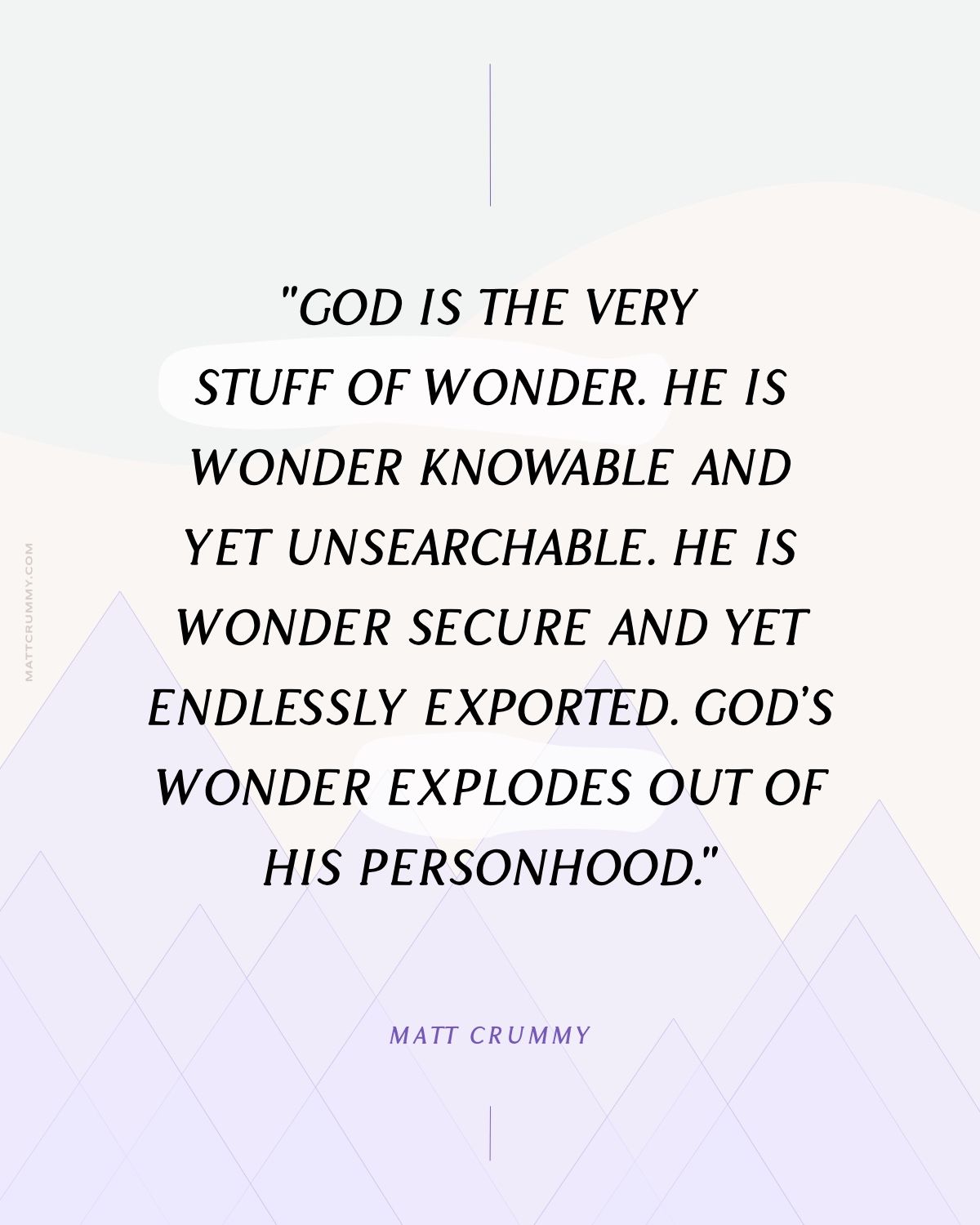
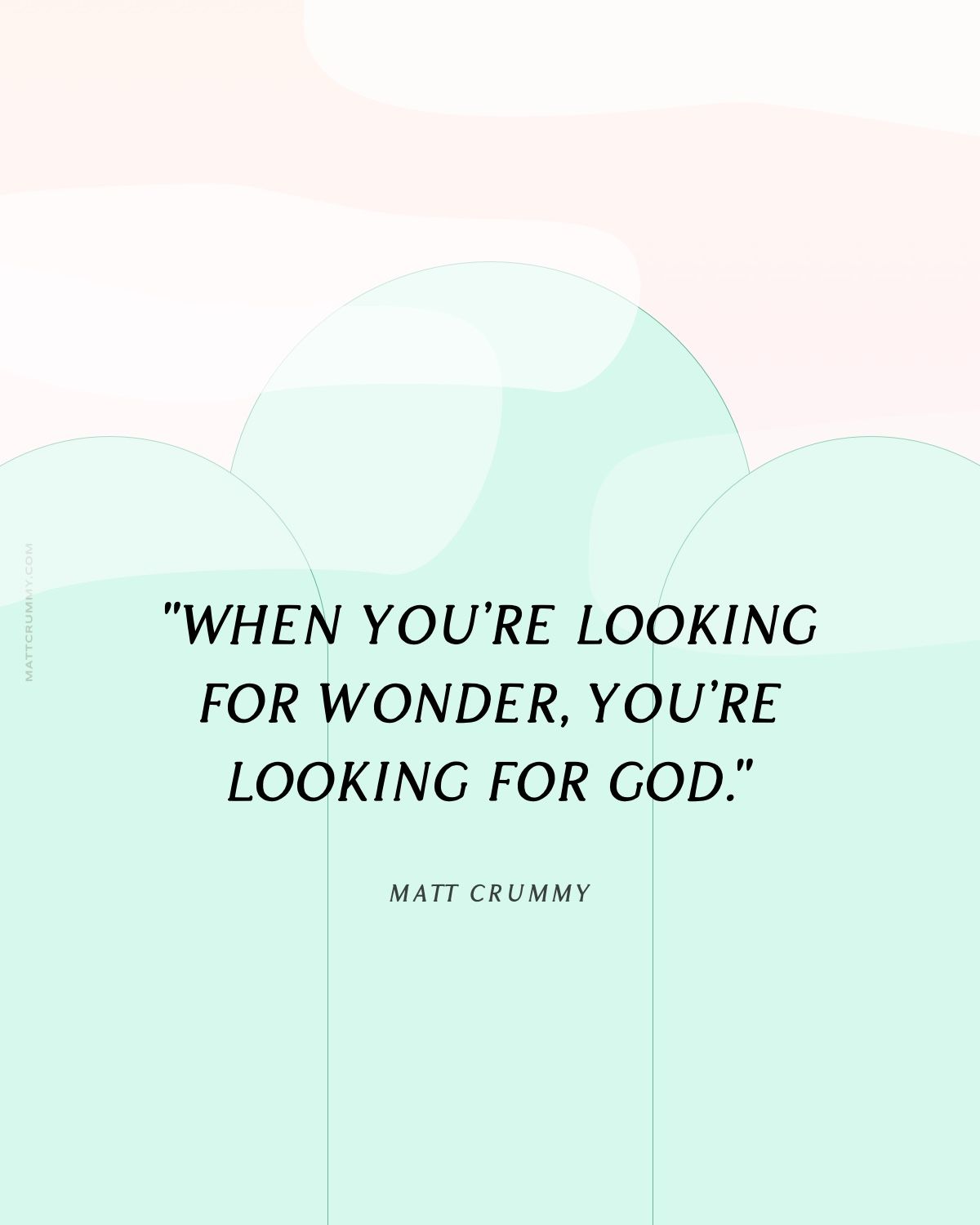
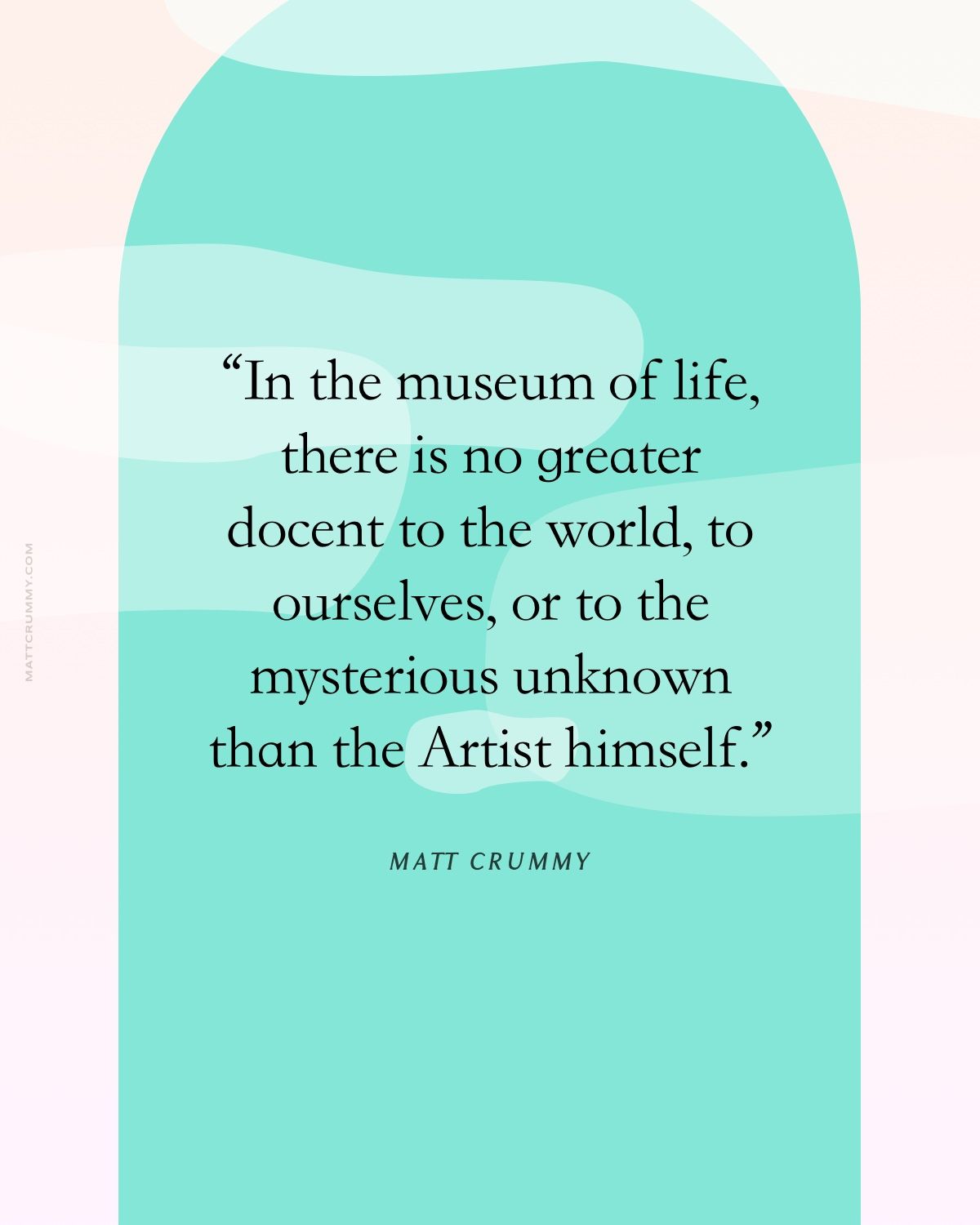
A note from Matt:
Welcome! Find this content helpful? Consider becoming a paid subscriber. You'll help fund more content like bible studies, book reviews, poetry, art, music, theological reference tools, a subscriber newsletter, & more. Let's grow together. Sign up today! 👏



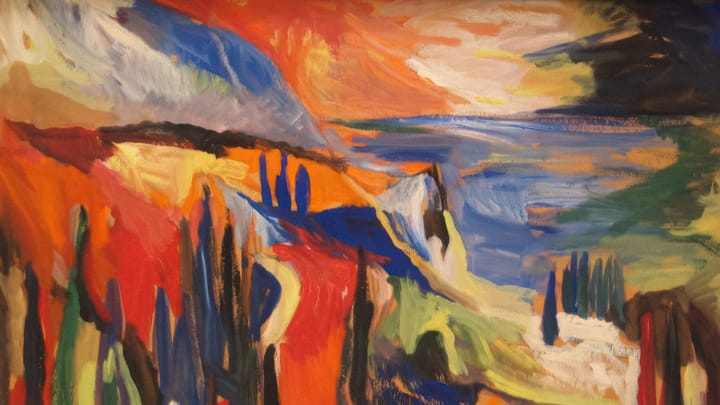
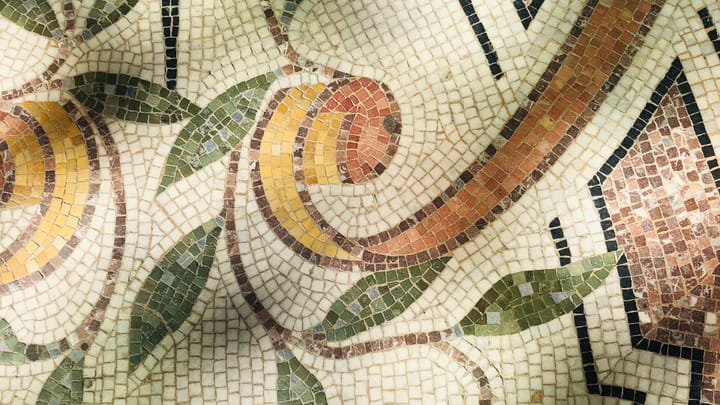

Comments ()